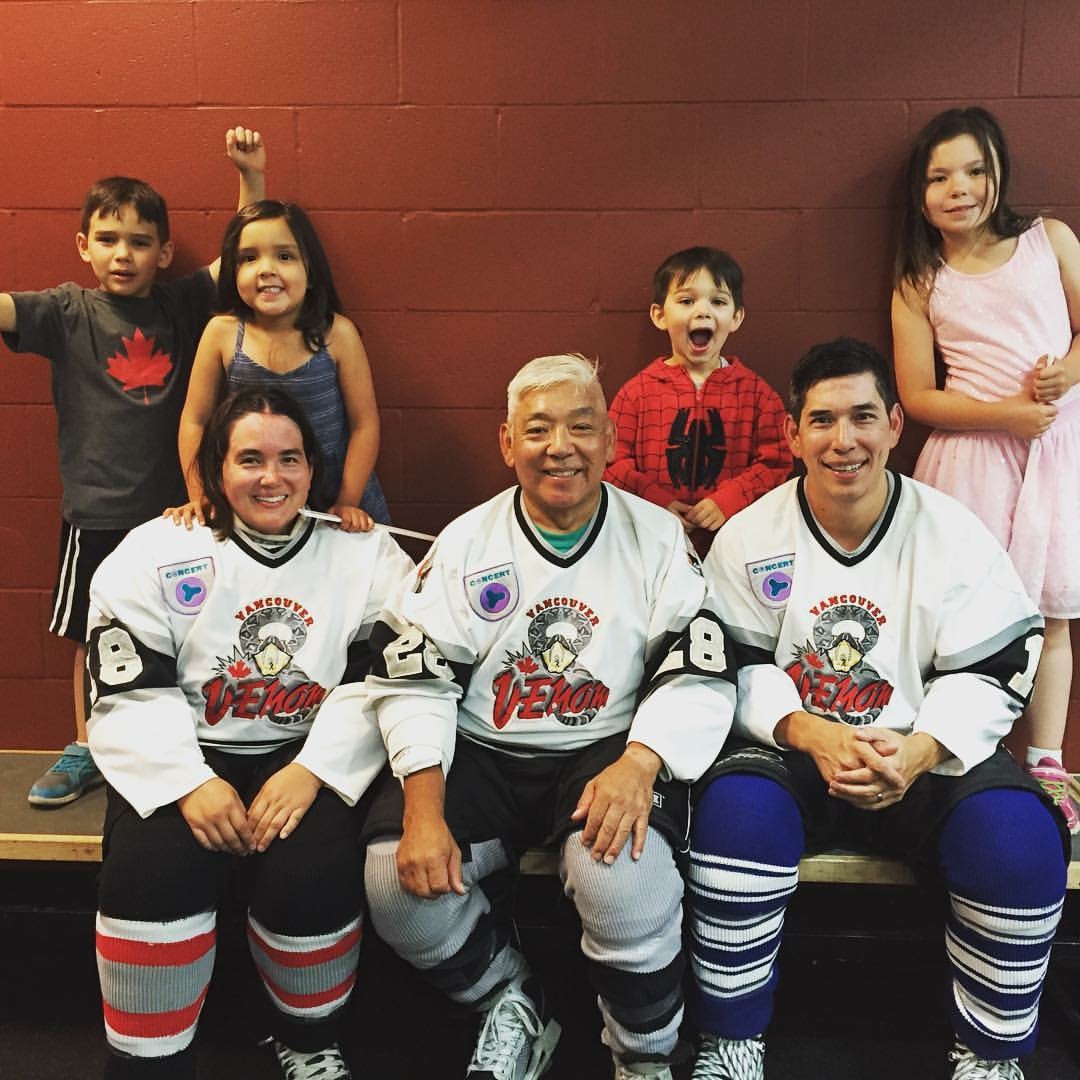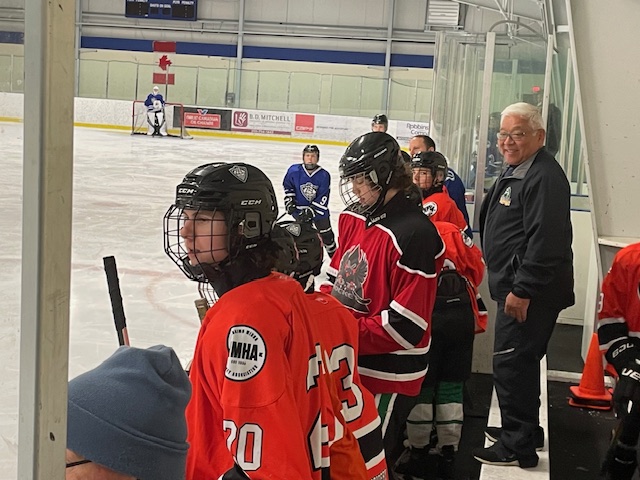Alumnus Brian Sugiyama shares insights on coaching youth hockey
Jennifer Fitzgerald - 16 June 2024

Brian Sugiyama, ’74 BA(RecAdmin), is a hockey coach with an impressive 40-year career. While not every player will reach the Stanley Cup finals, Sugiyama believes hockey imparts valuable life skills with the right coaching. His passion for the sport fuels his commitment to nurturing young talent within Hockey Canada’s coaching program.
Sugiyama's early experiences with hockey were rooted in Edmonton. “I played through various levels, including juvenile hockey.” His commitment to the sport only grew stronger as he transitioned to coaching novice players from 1983-87.
In the early days, he helped coach his son in Millwoods, Edmonton, where they immersed themselves in the community league system. "You want to have an involvement in your kids' hockey," he explained. Sugiyama later moved to Vancouver Island for a new job opportunity and lifestyle change. Despite the relocation, his son's passion for hockey persisted. “I began coaching him at the Atom level (ages nine to-10) in the Cowichan Valley, then in Nanaimo," he said.
To increase his coaching knowledge, Sugiyama pursued and completed certifications, including the Initiation, Coach, Development 1 and Advanced 1 through Hockey Canada. In 1991, seeking a fresh perspective, he decided to coach 16 to 17-year-old boys Midget AAA team as a non-parent coach.
Sugiyama says his coaching philosophy has been shaped significantly by his upbringing in Edmonton and his time at the University of Alberta. “I credit my degree in recreation administration from the U of A for broadening my perspective beyond competitive sports,” he says.
Over 40 years, Sugiyama has become a more empathetic and effective coach. "I've softened and become more at ease compared to my younger days," he says. "Now in my 70s, I have coached my four children and most of my grandchildren, focusing on where I can have the most impact."
Stepping into the officials' shoes
"Putting on the hat and walking in the shoes of the officials" has made Sugiyama a better communicator and advocate for respect in sports. His children and grandchildren have also served as officials, deepening their understanding of the challenges officials face. “I always try to engage with officials respectfully, asking questions and seeking clarification,” he adds.
His commitment to fostering a respectful environment has earned him praise from officials and players alike and aligns with Hockey Canada's mandate to stop maltreatment issues in the sport. “We need to eliminate the poor treatment of officials, players and opposing teams. Twenty years ago I was a more animated coach, but over the years, I've evolved to prioritize respect within team culture. Hockey should be a respectful sport where players, coaches and officials treat each other with dignity.”
 Changes in youth hockey
Changes in youth hockey
Sugiyama has witnessed significant changes in youth hockey over the years, particularly the rising costs. "Whether it’s private hockey or just playing on your local team, the expenses can be significant,” he says. “The cost of participating and the equipment itself has skyrocketed. When I was playing, no one could have imagined paying $200 to $300 for a hockey stick or $500 for a pair of skates. On top of that, parents now spend a considerable amount on extra training, hockey schools, spring hockey, and so on.”
Sugiyama acknowledges the tough choices young athletes face today. “Unlike when I was young, when it was possible to play multiple sports, today's high school athletes often have to specialize early due to the demanding nature of the sport.”
Balancing the technical aspects of hockey with the psychological and developmental needs of young players is improving. Sugiyama emphasizes the importance of providing options for players at different skill levels and maintaining a respectful and inclusive environment.
“While our initial focus may be on improving their hockey skills, ultimately, many of them transition to recreational or old-timers hockey leagues as they grow older. Some may pursue professional careers, but in the end, they all come back to playing for the sheer enjoyment of the game,” he says.
The future of hockey and advice for new coaches
Sugiyama stays abreast of new coaching techniques and technologies through his role as a course conductor and facilitator for Hockey Canada. “We embrace modern tools like the Hockey Canada network app and online coaching, which allow for more effective communication and training. The coaching with the whiteboard has been superseded by a smartphone connected to a TV screen," he explains.
Sugiyama's advice for new coaches is to "gather as much information as possible and recognize that we're only a brief part of these players' journeys. Our primary goal is to nurture them into better citizens. Improving their hockey skills may be a great byproduct, our main focus is on their personal development. This is especially challenging for youth aged 12 to 14 where players are still forming their identities.”
The true value of sport
Sugiyama's coaching legacy and dedication to nurturing young talent and promoting respect in hockey continue to shape the future of the sport, proving that true success lies in personal growth and the joy of the game.
As the Edmonton Oilers compete in the finals, Sugiyama reminds us, "Young people get a lot of values from sport... it doesn't have to be hockey. Not every player will become a professional athlete, but the skills and values learned through being an athlete are invaluable.”